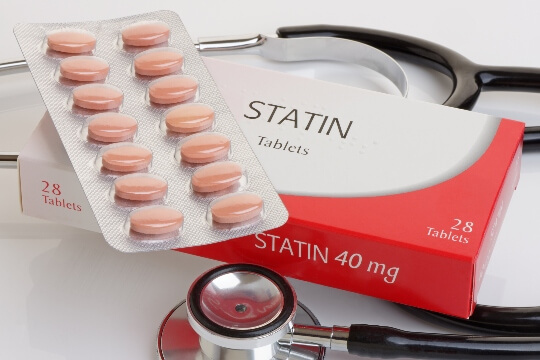Statins May Give Boost to Mesothelioma Immunotherapy Drugs
Research & Clinical TrialsWritten by Tim Povtak | Edited By Walter Pacheco

Researchers in Europe may have found the key to making immunotherapy drugs such as Opdivo and Keytruda more effective for a larger percentage of patients with malignant pleural mesothelioma.
Statins may be the answer.
While treatment with those heralded immunotherapy drugs have worked wonders for some, the majority of mesothelioma patients get little or no benefit from them in fighting off this cancer with no cure.
That may be changing soon.
In a recent study, doctors found that pleural mesothelioma patients receiving high-intensity statins in combination with Opdivo experienced dramatic improvement in overall response rate, progression-free survival and median overall survival, compared to those receiving only the immunotherapy drug.
The European Journal of Cancer will publish the study in its February 2021 issue. Researchers are from Italy and the Netherlands.
“Our study potentially opens up new scenarios for mesothelioma patients in the future,” lead author Dr. Rossana Berardi at Universita Politecnica delle Marche in Ancona, Italy, told The Mesothelioma Center at Asbestos.com. “The impact of statins was significant.”
Making Immunotherapy More Effective
Statins are best known for their use in lowering high levels of cholesterol in otherwise healthy individuals. Their potential benefit as a cancer adjuvant is still being debated and explored.
This study, which included both patients with pleural mesothelioma and with advanced non-small cell lung cancer, found a potential synergy with the immunotherapy drugs.
Opdivo and Keytruda, generically called nivolumab and pembrolizumab, respectively, are known as PD-1 inhibitors, drugs that restrict a protein from stopping immune response to cancer cells.
“Statins may lead to prolonged antigen retention on cell membrane and strengthen antigen presentation to T cells, thus suggesting a potential synergy with PD-1 inhibitors,” the authors wrote. “The anti-tumor effect of statins might be attributed to an indirect immunotherapeutic effect.”
The 82 pleural mesothelioma patients in the study were from the Erasmus Medical Center in Rotterdam, Netherlands, and part of the expanded access program for nivolumab. They all were receiving second- or third-line treatment.
Improvement with Statins Was Considerable
The overall response rate was 22% vs. 6% for those receiving statins with nivolumab compared to those not receiving the statins. Progression-free survival advantage was 6.7 months vs. 2.3 months, respectively.
Median overall survival was not reached by study end for those receiving statins vs. six months for those not receiving them.
When the non-small cell lung cancer patients were included, the results were almost as impressive with statins vs. non-statins:
- Overall response rate: 32% vs. 18%
- Median progression-free survival: 6.7 months vs. 2.9 months
- Median overall survival: 13.1 months vs. 8.7 months
In a control group of mesothelioma patients who used only chemotherapy with statins, no improvement in progression-free survival or overall survival was found, accentuating the belief in a synergistic effect with immunotherapy.
Immunotherapy Alone for Mesothelioma Has Been Lacking
The recent use of immunotherapy drugs for pleural mesothelioma overall has been both encouraging and disappointing at times.
In October, the immunotherapy combination of Opdivo and Yervoy became the first drug combination in 16 years to be approved by the FDA for first-line treatment of pleural mesothelioma.
Then, in June, Keytruda was approved for unresectable disease that had progressed after first-line treatment with no alternative options remaining.
At the same time, both drugs have worked effectively for only a small percentage of mesothelioma patients possessing specific molecular alterations. They have worked more effectively when combined with other drugs that prompt a synergistic response.
The study authors also noted high-intensity statins that often come with increased side effects were more effective than those of low intensity.
“If our results are prospectively confirmed, statins could represent an optimal strategy of drug repurposing in combination with anti-PD-1 therapy to improve outcomes in patients with thoracic malignancies, including mesothelioma,” Berardi said.






